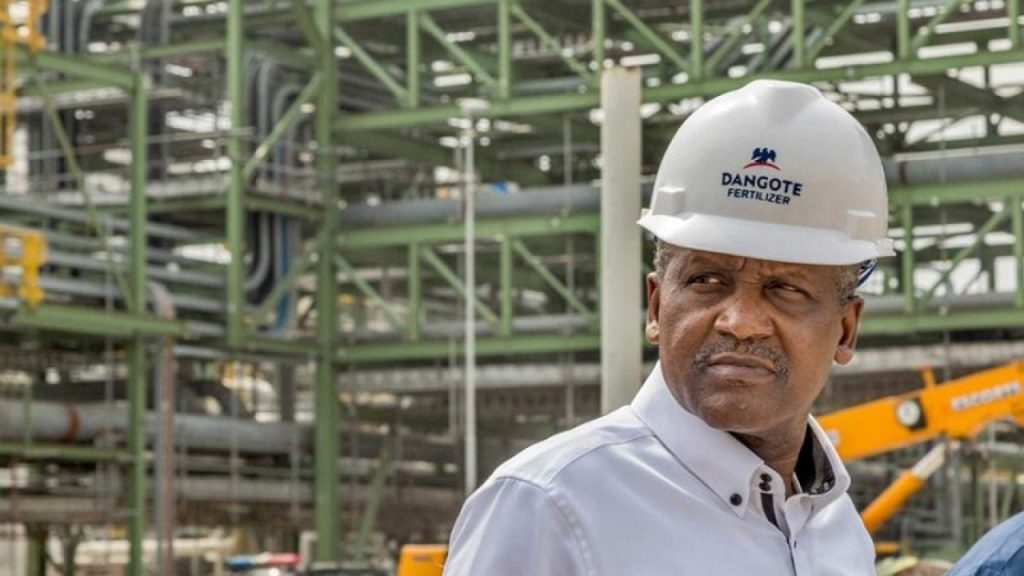Dangote Petroleum Refinery has unequivocally stated that union membership for its employees remains entirely voluntary, aligning with both the Nigerian Constitution and established International Labour Organisation conventions. This clarification comes in response to what the company characterizes as “distortions of facts” disseminated by the Nigeria Union of Petroleum and Natural Gas Workers (NUPENG) regarding their worker relations. The refinery emphatically denies any interference with or restriction of employees’ right to freely associate with legally recognized unions, emphasizing that individual choices regarding union affiliation should not be attributed to the company. Dangote rejects allegations of coercing drivers to sign contracts prohibiting union membership as baseless, urging NUPENG to address its internal disputes with the Petrol Tanker Drivers unit rather than involving the refinery in its internal conflicts. The company posits that these accusations of union suppression are part of a broader campaign to undermine the progress of the private sector.
Contrary to NUPENG’s claims, Dangote Petroleum Refinery asserts maintaining a positive and collaborative relationship with all recognized trade unions, including NUPENG. This cooperation is manifested through the provision of office space within the refinery, facilitating member engagement and dues collection without interference. The company reiterates its support for the mediation efforts initiated by the Ministry of Labour and appeals to NUPENG to engage constructively in the ongoing dialogue process, refraining from statements that could jeopardize national economic recovery initiatives spearheaded by President Bola Ahmed Tinubu. As Nigeria’s largest private sector employer, Dangote Industries Limited emphasizes its commitment to workforce welfare, safety, and career advancement.
Highlighting its commitment to employee well-being, Dangote Industries Limited reveals that drivers participating in its new Compressed Natural Gas (CNG) truck scheme receive compensation packages three times higher than the national minimum wage. These packages include comprehensive benefits such as group insurance, pension plans, medical allowances, housing benefits, and access to loans. The company projects that the deployment of 10,000 CNG-powered trucks will generate at least 60,000 direct jobs and numerous indirect employment opportunities. This substantial N720 billion investment aims to reduce logistics costs, extend the benefits of domestic refining to rural communities, and support the Federal Government’s energy transition agenda.
Since the refinery’s commissioning a year ago, Dangote proudly proclaims Nigeria’s transformation from Africa’s largest importer of refined fuel to a net exporter, even reaching markets as far as the United States. The company accentuates its production of valuable by-products like polypropylene, base oils, and jet fuel, which are stimulating growth in various sectors, including plastics, aviation, lubricants, and agro-processing. Dangote attributes the elimination of persistent fuel scarcity, price stabilization, and the supply of high-quality fuel to its operations, despite challenges posed by importers of substandard products. The company further notes the creation of over 570,000 jobs across logistics, construction, and maintenance, with host communities benefiting from improved infrastructure such as roads, power, and water supply.
Furthermore, Dangote Petroleum Refinery underscores its role as a hub for skills transfer, providing training to thousands of Nigerian engineers and technicians in modern refining techniques. This investment in human capital development contributes to the long-term sustainability of the Nigerian oil and gas sector. The company views its operations as a catalyst for economic growth and national development, impacting various sectors and communities across the country.
Addressing concerns about potential monopolistic practices, Dangote dismisses them as “recycled falsehoods,” emphasizing that the real concern lies in the reluctance of other potential investors to contribute to Nigeria’s economic growth. The company underscores its commitment to investing boldly in Nigeria’s future and challenges others to follow suit. Dangote contends that its significant investments demonstrate a commitment to national development and encourage further private sector participation in the Nigerian economy. The company maintains that its focus remains on driving economic progress and contributing to the nation’s overall prosperity.


